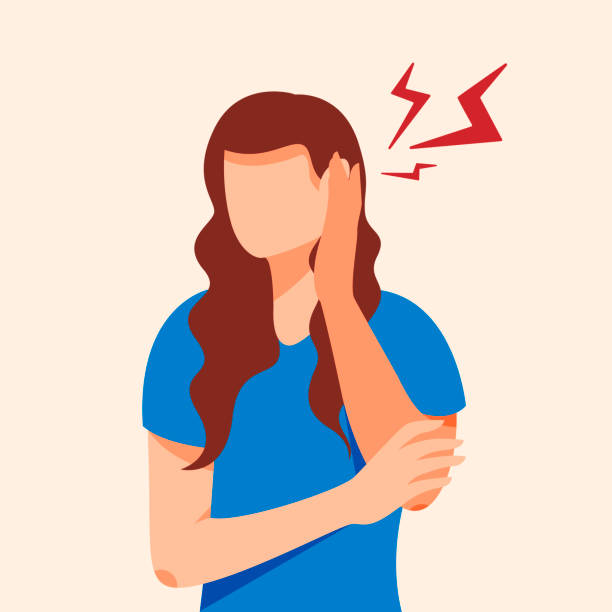Health Conditions
Startling Causes of Sudden Hearing Loss
Sudden hearing loss can be a disconcerting and frightening event, frequently leaving people puzzled about the underlying causes. While hearing loss usually happens gradually over time, sudden onset hearing loss, also known as sudden sensorineural hearing loss (SSNHL), can happen quickly and unexpectedly. Understanding the potential triggers and circumstances that contribute to this illness is critical for early intervention and management. In this article, we will look at the complex web of causes of sudden hearing loss, which includes viral infections, vascular issues, and ototoxic medications. We will provide insights into the multifaceted nature of this condition and valuable information for those looking for answers.

Understanding Sudden Hearing Loss
Defining Sudden Hearing Loss
Sudden hearing loss (SHL) is a condition characterized by an unexplained, rapid loss of hearing, either all at once or over a period of several days. It is also known as sudden sensorineural hearing loss (SSHL), which means that the inner ear’s sensory organs are impacted.
SHL is a medical emergency that requires prompt treatment. It can affect one or both ears, but it usually affects only one. The severity of hearing loss can range from minor to severe, depending on the extent of damage to the inner ear.
Symptoms and Diagnosis
SHL symptoms include an abrupt reduction in hearing, which may be accompanied by tinnitus (ear ringing) and dizziness. Some people may feel a sense of fullness or pressure in the affected ear.
To diagnose SHL, a hearing exam is required, which may include pure-tone audiometry, speech audiometry, and balancing tests. An MRI may also be performed to rule out other potential reasons for hearing loss, such as a tumor.
If you develop sudden hearing impaired, get medical attention immediately. The earlier the diagnosis and therapy, the greater the likelihood of recovery. Medications such as steroids and hearing aids may be used to treat the condition.
To summarize, abrupt hearing loss can be a terrifying experience, but with timely medical attention, it is generally effectively treated. If you encounter any signs of SHL, seek medical attention right once.

Potential Causes and Risk Factors
There are several different causes of sudden hearing loss. In rare cases, the cause remains unknown. However, research has discovered a number of probable reasons and risk factors for sudden hearing loss. This includes:
Infections and Inflammation
Infections and inflammation can result in acute hearing loss. Viral infections, such as colds, the flu, and sinus infections, can induce inflammation in the inner ear, resulting in hearing loss. Autoimmune illnesses, such as Cogan’s syndrome, can potentially induce inflammation and hearing loss by damaging the inner ear.
Inner Ear and Nerve Conditions
Conditions affecting the inner ear and nerves can also cause unexpected hearing loss. Meniere’s disease, for example, is an inner ear ailment that can result in vertigo, tinnitus, and hearing loss. Neurological illnesses, such as multiple sclerosis, can also harm the nerves that transfer sound to the brain, resulting in hearing loss.
Physical Trauma and Environmental Factors
Physical trauma and environmental factors can also cause sudden hearing loss. Head injuries from automobile accidents or falls can damage the inner ear or nerves, resulting in hearing loss. Loud noises, such as those produced by music, machinery, or firearms, can also cause inner ear injury and hearing loss. Barotrauma, or sudden changes in air pressure, can potentially harm the inner ear and cause hearing loss.
Overall, there are several reasons that can contribute to unexpected hearing loss. If you have unexpected hearing loss, you should seek medical assistance to discover the reason and obtain proper treatment.

Treatment and Management
Sudden hearing loss is a medical emergency that requires rapid treatment. The treatment and management of abrupt hearing loss is determined by the underlying cause, the severity of the hearing loss, and the patient’s overall health. In most situations, the goal of treatment is to restore hearing as much as possible while avoiding permanent hearing loss.
Medical Interventions
Medical procedures are the primary treatment for abrupt hearing loss. Corticosteroids, whether oral or injectable, are the most commonly used medicinal intervention. Prednisone and other oral steroids can reduce inflammation and swelling in the inner ear, allowing hearing to be restored. Steroid injections directly into the inner ear can be useful in some circumstances.
Antibiotics may also be recommended if the sudden hearing loss is due to an infection. However, medicines are not effective against many illnesses that might cause abrupt hearing loss.
Surgical and Technological Solutions
If medical approaches are ineffective, surgical and technology alternatives may be considered. Cochlear implants and hearing aids are two common treatments for restoring hearing. Cochlear implants are surgically inserted electronic devices that can help restore hearing in patients who have severe hearing loss. Hearing aids are devices that amplify sound and can be worn inside or behind the ear.
In certain circumstances, surgery may be necessary to address the underlying cause of acute hearing loss. For example, surgery may be required to remove a tumor or repair a perforated eardrum.
If you develop sudden hearing loss, get medical attention immediately. A doctor or otolaryngologist (ear, nose, and throat specialist) can determine the source of the hearing loss and suggest appropriate treatment. Healthcare providers may also suggest follow-up sessions to check progress and change treatment as required.
Conclusion
To summarize, abrupt hearing loss can be a distressing and perplexing condition that typically requires immediate attention and assistance. While the actual etiology of sudden sensorineural hearing loss (SSNHL) is unknown in many cases, variables such as viral infections, vascular problems, and ototoxic medicines have been linked. Understanding these potential triggers and obtaining prompt medical attention is critical for effectively treating sudden hearing loss and reducing its impact on the overall quality of life. Furthermore, continuous study and advances in medical science continue to shed light on the intricacies of this ailment, raising the prospect of improved diagnostic procedures and treatment approaches in the future. We can improve outcomes and assistance for those navigating this difficult journey by raising awareness and encouraging collaboration among healthcare professionals and individuals affected by unexpected hearing loss.
Trusted Health, Wellness, and Medical advice for your well-being


